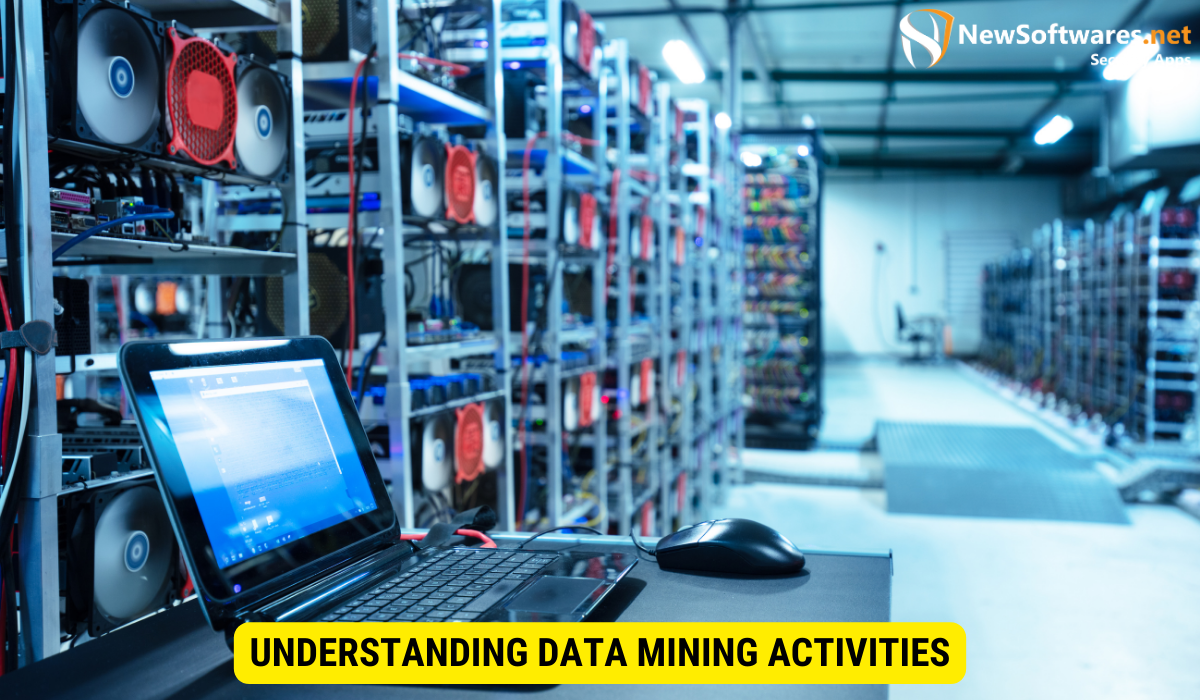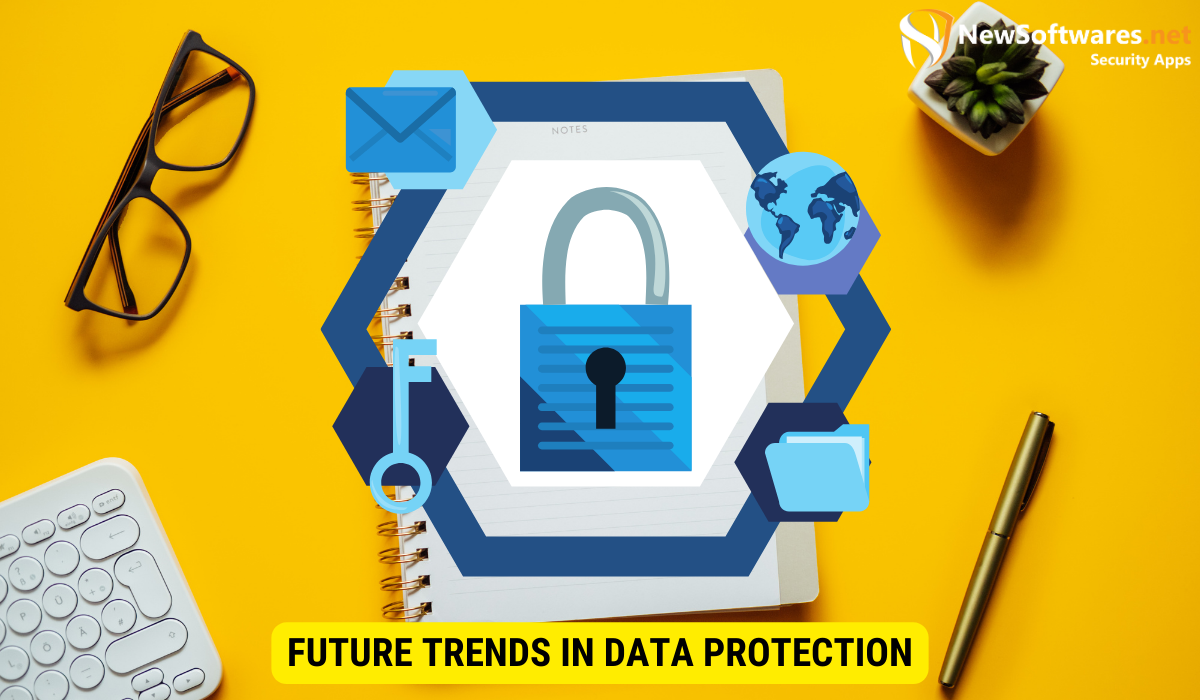To enhance protection against data mining activities, organizations should implement robust security measures, update systems regularly, employ data anonymization techniques, explore advanced technologies like AI and blockchain, consider legal compliance and ethical implications, and prepare for future data protection challenges.
Data mining activities have become increasingly prevalent in today’s digital age. As more and more organizations adopt data-driven decision-making processes, the risks and threats associated with data mining have also risen. It is crucial for businesses to implement strategies to protect sensitive data from unauthorized access and potential misuse. Let’s dive deep into the various strategies that enhance protection against data mining activities.
Understanding Data Mining Activities

Data mining can be defined as the process of extracting valuable insights and patterns from large datasets. It involves techniques such as machine learning, statistical analysis, and pattern recognition to uncover hidden information.
Data mining is a powerful tool that enables businesses to make informed decisions and gain a competitive edge. By analyzing vast amounts of data, organizations can identify trends, predict customer behavior, and optimize their operations. This process involves collecting, cleaning, and transforming data into a format that can be easily analyzed. Once the data is prepared, various algorithms and models are applied to discover patterns and relationships that may not be immediately apparent.
One of the key aspects of data mining is machine learning, which allows computers to learn from data and improve their performance over time. This involves training models on historical data and using them to make predictions or classify new data. For example, a retailer might use data mining techniques to analyze customer purchase history and predict which products are likely to be purchased together. This information can then be used to optimize inventory management and offer personalized recommendations to customers.
Defining Data Mining
Data mining refers to the process of discovering meaningful patterns, associations, and correlations within a dataset. It involves collecting, analyzing, and interpreting large volumes of data to gain valuable insights into customer behavior, market trends, and business performance.
Data mining techniques can be applied to various domains, including finance, healthcare, marketing, and social media. In finance, for example, data mining can be used to detect fraudulent transactions or predict stock market trends. In healthcare, it can help identify patterns in patient data to improve diagnosis and treatment. In marketing, data mining can uncover customer preferences and segment the target audience for more effective campaigns. And in social media, it can analyze user behavior to personalize content and improve user experience.
To perform data mining, it is important to have a clear understanding of the data being analyzed and the goals of the analysis. This involves defining the scope of the project, selecting the appropriate data sources, and determining the relevant variables to consider. It is also crucial to ensure data quality, as inaccurate or incomplete data can lead to misleading results. Data preprocessing techniques, such as data cleaning and outlier detection, are often applied to improve the reliability of the analysis.
The Risks and Threats of Data Mining
While data mining offers numerous benefits and opportunities for businesses, it also presents several risks and threats. One major concern is the potential breach of sensitive information, such as personal or financial data, which can lead to identity theft or fraud. Organizations must take measures to protect data privacy and security, including implementing encryption, access controls, and data anonymization techniques.
Another risk of data mining is the possibility of making incorrect or biased predictions. This can occur if the data used for training the models is not representative of the target population or if the algorithms used are biased. It is important to carefully select and preprocess the data to minimize these risks and ensure the accuracy and fairness of the results.
Data mining activities can also raise ethical concerns, especially when data is collected without the knowledge or consent of individuals. Organizations must be transparent about their data collection practices and provide individuals with the option to opt out or control how their data is used. Additionally, data mining should be conducted in compliance with relevant laws and regulations, such as data protection and privacy laws.
In conclusion, data mining is a powerful tool that can provide valuable insights and drive business success. However, it is important to approach data mining activities with caution and address the associated risks and ethical considerations. By doing so, organizations can harness the full potential of data mining while ensuring the privacy, security, and fairness of the process.
Essential Strategies to Protect Against Data Mining
To enhance protection against data mining activities, organizations must implement robust security measures and adopt proactive strategies.
Implementing Robust Security Measures
Establishing strong security measures is crucial to safeguard sensitive data from unauthorized access. This includes utilizing encryption techniques, secure user authentication protocols, and firewalls to protect data from external threats. Conducting regular security audits and assessments can help identify vulnerabilities and address them promptly.
Regularly Updating and Patching Systems
Keeping software and systems up-to-date is essential to protect against known vulnerabilities and potential exploits. Regularly applying security patches and updates can safeguard against data breaches and unauthorized access. Organizations should establish a comprehensive patch management system to ensure timely updates across all devices and systems.
Employing Data Anonymization Techniques
Data anonymization is a technique that helps protect personal information by removing or encrypting identifiable data elements. This allows organizations to derive valuable insights from data while ensuring the privacy and anonymity of individuals. By employing data anonymization techniques, businesses can mitigate the risks associated with data mining activities.
Advanced Protection Strategies
In addition to the essential strategies mentioned above, advanced protection strategies can further enhance data protection against mining activities.
Utilizing Artificial Intelligence for Data Protection
With the increasing sophistication of data mining techniques, businesses can leverage artificial intelligence (AI) for data protection. AI algorithms can identify abnormal data patterns and behaviors, detecting potential data breaches in real-time. Implementing AI-based intrusion detection systems and anomaly detection algorithms can significantly enhance data security.
Exploring Blockchain Technology for Data Security
Blockchain technology offers a decentralized and tamper-resistant platform for data storage and transactions. By utilizing blockchain, organizations can enhance data security, as the technology ensures immutability and transparency. Storing sensitive data on a blockchain network can minimize the risk of unauthorized access and data tampering, offering an additional layer of protection against data mining activities.
Legal and Ethical Considerations in Data Mining
While implementing strong protection strategies is imperative, organizations must also consider the legal and ethical implications of data mining activities.
Understanding Data Protection Laws
Organizations must comply with data protection laws, regulations, and standards to ensure that data mining activities adhere to legal requirements. Understanding the General Data Protection Regulation (GDPR) and other relevant laws is essential to safeguard the privacy rights of individuals and avoid penalties or legal consequences.
Ethical Implications of Data Mining
Ethical considerations play a vital role in data mining activities. Businesses must ensure that the collection and use of data align with ethical guidelines and respect individual privacy rights. Transparency in data collection practices, obtaining informed consent, and providing individuals with the option to opt-out are crucial steps in maintaining ethical data mining practices.
Future Trends in Data Protection

To stay ahead of evolving data mining techniques, organizations should prepare for future data protection challenges.
Predicting Future Data Mining Techniques
Data mining techniques are continually evolving. Organizations must stay updated on emerging trends and anticipate future data mining techniques. This allows businesses to proactively adopt countermeasures and protective strategies to mitigate potential risks.
Preparing for Future Data Protection Challenges
The landscape of data protection is ever-changing. It is crucial for organizations to continually evaluate and enhance their data protection strategies. This includes investing in advanced technologies, educating employees on data security best practices, and fostering a culture of data protection throughout the organization.
Key Takeaways
- Data mining activities pose risks and threats to sensitive data and individual privacy.
- Robust security measures, regular system updates, and data anonymization techniques are essential strategies for protecting against data mining.
- Advanced protection strategies, such as leveraging AI and blockchain technology, can further enhance data security.
- Organizations must consider legal compliance and ethical implications when conducting data mining activities.
- Preparing for future data protection challenges is crucial to stay ahead of emerging threats and trends.
FAQs
What is data mining?
Data mining refers to the process of extracting valuable insights and patterns from large datasets through techniques such as machine learning and statistical analysis.
What are the risks of data mining?
Data mining activities pose risks such as unauthorized access to sensitive information, breach of privacy rights, and ethical concerns related to data collection without consent.
How can organizations protect against data mining?
Organizations can protect against data mining by implementing robust security measures, regularly updating systems, employing data anonymization techniques, and exploring advanced technologies like AI and blockchain.
What are the legal considerations in data mining?
Legal considerations in data mining include complying with data protection laws like GDPR and ensuring that data collection practices align with legal requirements.
How can organizations prepare for future data protection challenges?
Organizations can prepare for future data protection challenges by staying updated on emerging data mining techniques, investing in advanced technologies, and fostering a culture of data protection.
Conclusion
Protecting against data mining activities is critical for organizations to safeguard sensitive data and individual privacy. By implementing robust security measures, regularly updating systems, employing data anonymization techniques, and exploring advanced protection strategies like AI and blockchain, businesses can enhance their data security and mitigate potential risks. Furthermore, adhering to legal requirements and ethical guidelines ensures responsible data mining practices. It is essential for organizations to stay proactive and prepared for future data protection challenges to stay ahead of evolving threats and trends in the data mining landscape.
